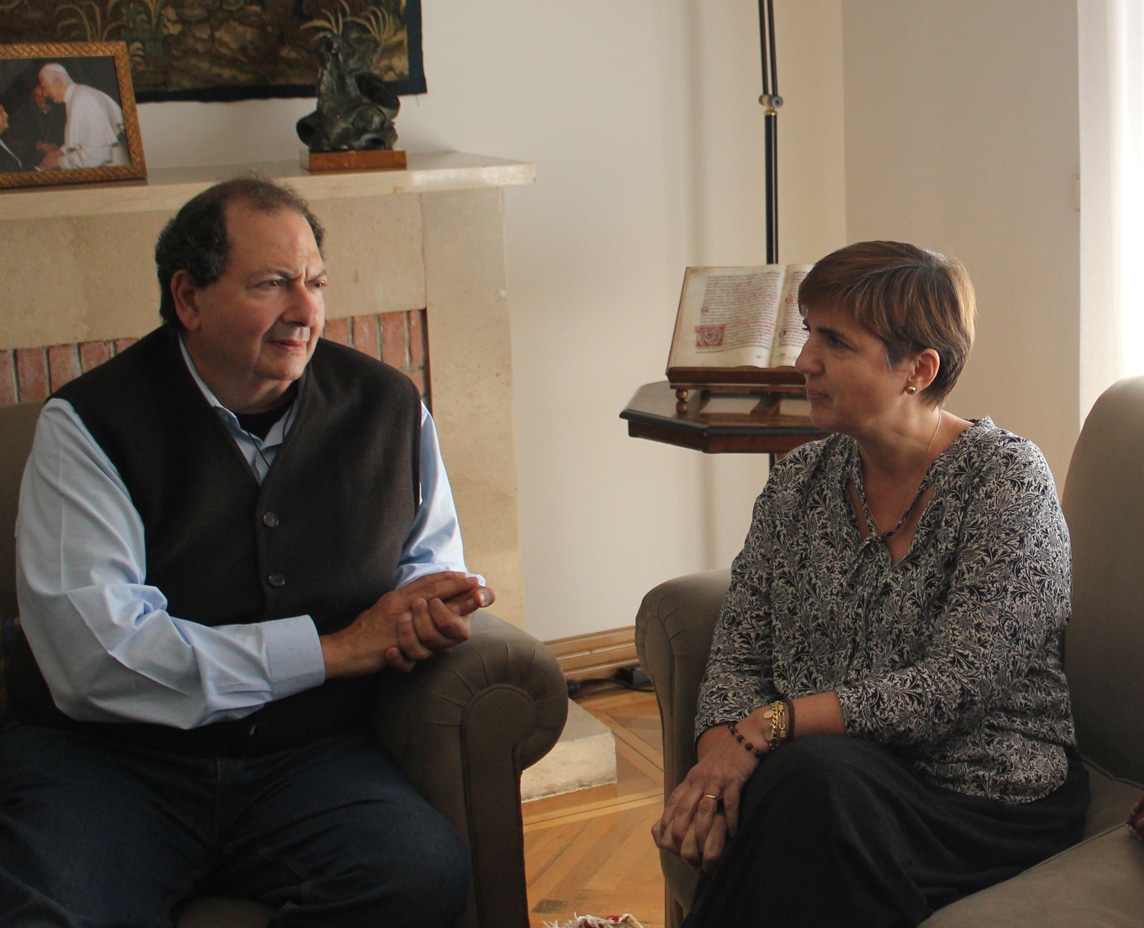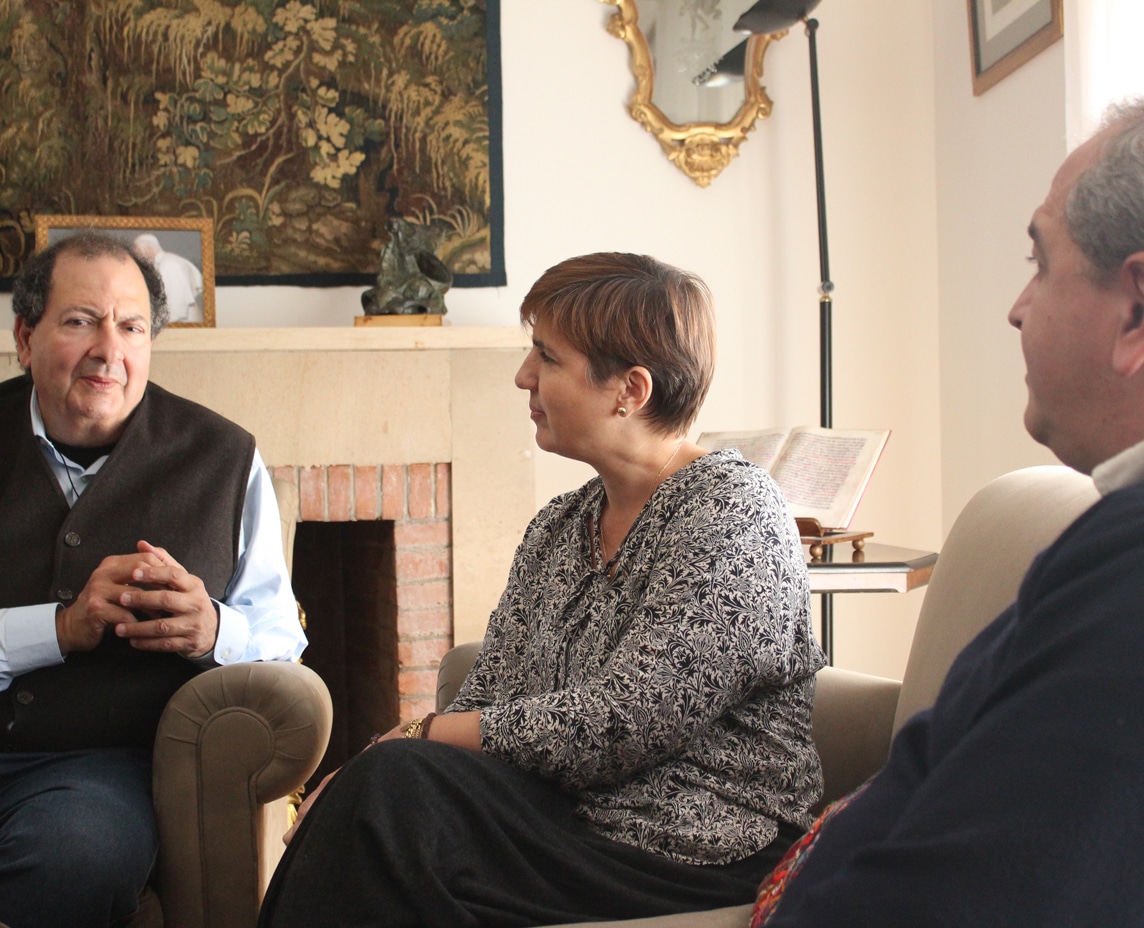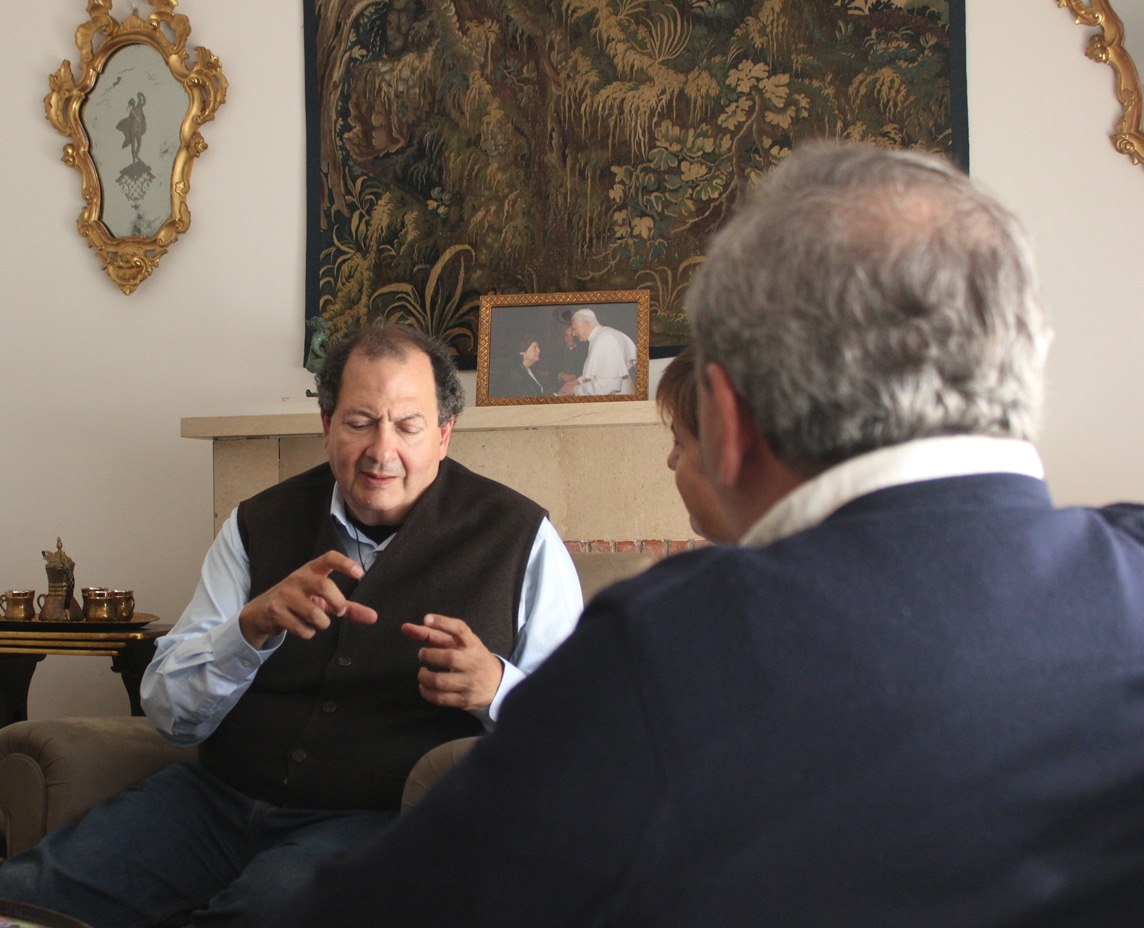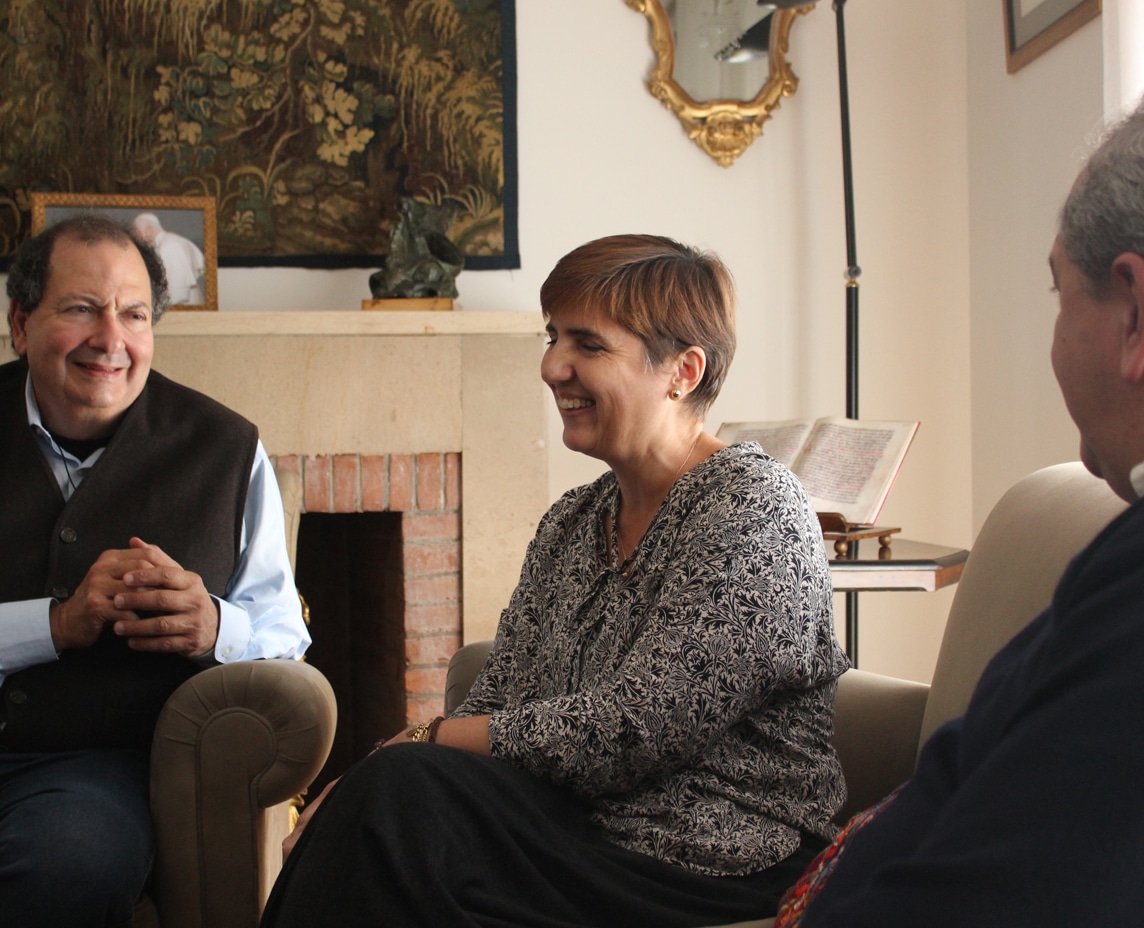Last Tuesday, October 16, we received the visit of Nadim Shehadi, Lebanese, associate researcher of the Middle East Program of Chatham House and member of the advisory committee of the Middle East Studies Center of Fundación Promoción Social (www.cemofps.org), since the beginning.
Nadim Shehadi participated last Monday in the seminar “Lebanon under pressure” organized by Casa Árabe where he addressed the issue of the regional dimension of the Lebanese crisis.
During his visit, we were able to talk about this and other issues.
About Lebanon, he told us that although today he faces many problems, it is a country in peace and in which a consensus situation prevails.
While the situation of all the countries in the Region is very delicate and it is worsening, it does not happen, in their opinion, the same with Lebanon. His explanation is that during the twentieth century a model of a strong, secular, homogeneous, cohesive state, provider of services was praised, according to his words, similar to what Atatürk did in Turkey to achieve a secular society, or the Ba´ath party in Syria, or Bourguiba in Tunisia, including Gaddafi in Libya.
For him, among the Europeans there was the ingrained idea of pursuing a secular, cohesive and homogenous state, with sovereign and politically active borders, so that Lebanon throughout the 20th century was considered a failure, because Lebanon never became cohesive and homogenous,
“we have a system where power is shared and religions are concerned with their own affairs, Lebanese are not nationalists, and in some way they are sectarian.”.
According to him, if we review the reports and what was written in 2009 about the Region, there was consensus on the ideal situation in Syria, Iraq was considered to be following the right path, Egypt and Tunisia enjoyed a good situation, and Libya was reforming, in the face of all these opinions, Lebanon was a failure, a hopeless case and a place about to explode.
Two years later, they all collapsed and Lebanon remains the same, he added. Shehadi after this reflection addressed his explanation about the phenomenon of the “Arab Spring”:
“For all that I have commented previously my interpretation of the Arab Spring is as follows, I do not translate” Spring “as the spring season but as the device. The more you press on, the higher it jumps and it is less predictable how it does it. In Lebanon we never had a very strong state that repressed the whole society as it happened in Turkey, in Syria, in Iraq, in Egypt, and in Libya, so the “device or spring” in Lebanon was not under pressure, while the phenomenon of “Arab springs” in other countries it was, and they were about to explode.”
According to Nadim Shehadi, the model that we must review for the Region is that of coexistence between people without a strong state to repress them. He proposes that Lebanon, which was discredited throughout the 20th century, must now be taken more seriously, in a situation of global crisis where the states and the ruling classes suffer all these emerging populist movements, also nationalist, as in Mexico, in Italy or in Hungary. These phenomena, which currently question the ruling classes, are linked to the debt of the states, which is a serious problem for the economy as a whole and which can lead to the collapse of the global economy.
According to Nadim Shehadi, this new situation is the result of the failure of the previously mentioned state model that has been pursued during the 20th century, and alternative models should be examined.
In Europe, we have the conception that the ideal state model is the one that fulfills all these criteria of a secular, homogeneous and strong, sovereign state, etc. Thus Europe trusts to transform Syria, according to its opinion, because the European Neighborhood Policy is a bureaucratic monster that was built to transform a country like the Romania of Ceausescu.
In a European liberal country, Europeans believe they have the tools to reform Syria, and for them working with a citizen like Asad is relatively comfortable because they have thousands of pages, rules and regulations, and thousands of experts able to contribute to the last point on how to do the traditional reform, the reform of the security sector, the constitutional reform, the liberalization of the economy, and also because they already did with Eastern Europe.
But according to him, they cannot do it in a situation where Arab springs have exploded, phenomena like the Muslim Brotherhood, tribal, etc. have appeared, and this is the new order that we have to understand in the region.





